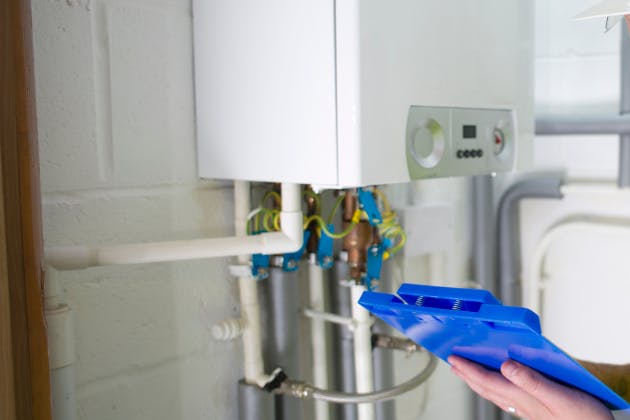Although it is still summer, winter is on its way, and many households will prioritise a good central heating system. Being in a cold home for an extended period of time can be uncomfortable and even dangerous, so it's critical to be able to find professional repairs when you need them.
This is where a heating engineer comes in; their skill set is very similar to that of a plumber, but they only deal with heating issues in buildings. Many plumbers are also trained in boiler installation, but if you have a more serious issue or are unsure what the problem is, it's usually best to call the experts. Heating engineers do more than just install boilers; they are critical to keeping buildings comfortably heated, warm, and dry. Continue reading for a more detailed explanation of the various roles of a heating engineer.
If you require the services of a gas engineer in Eastbourne, Bexhill, or Hailsham, please contact us at 07725 520980 or via our contact form.

What qualifications and skills do you need to be a gas engineer?
To become a heating engineer, also known as a gas engineer, candidates must first obtain an industry qualification, such as an NVQ or Diploma in a course such as Gas Utilisation or Domestic Natural Gas Installation. All gas engineers are required by law to be members of the Gas Safe Register, which can be obtained by passing a Gas Assessment Training exam.
To begin studying for the above qualifications, all potential candidates must be enrolled in an apprenticeship programme. Most apprenticeships require four A* to C GCSE grades in Math, English, and two other relevant subjects such as Science or Technology. As you can see, becoming a registered heating engineer requires a significant amount of effort and training, so you can rest assured that your worker is fully qualified and experienced. Always ask to see your engineer's Gas Safe Card to ensure they are Gas Safe.
Boiler repair and installation
We all require hot water, so boiler installation or repair is one of the most common reasons for contacting a heating engineer, and it is an essential part of staying comfortable in your home, especially during the winter. A boiler uses electricity, gas, or oil to rapidly heat water for central heating or hot water from the taps. Installing a boiler can be a difficult process that should always be done by a trained professional.
An engineer should come to your house before the installation to assess several factors, including the location of the current boiler, the water pressure, the number of radiators and bathrooms, and the position of the flue. A boiler installation typically takes one to two days, and you are not required to be present during this time.
The engineer will connect the boiler to your electrical heating controls, install sealants to ensure no leakage, and possibly perform a power flush to remove any dirt or debris that could cause damage. Be aware that changing the type of boiler (for example, from a combi boiler to a conventional boiler) may cost more and be more difficult to install.
Heating engineers are also trained to perform boiler repairs, which may be required if you have no hot water, low water pressure, your boiler is making unusual or banging noises, or the pilot light keeps going out.
Some emergency plumbers may be qualified to perform boiler repairs, but to be safe, it's best to hire a heating engineer who has been specially trained in this area.
Boiler Servicing
Regular boiler servicing is essential to keeping your boiler running safely and efficiently. A heating engineer can also help you with this. Ideally, you should have your boiler serviced once a year. A thorough service check will include checking the gas pressure and flow, ensuring the seals are intact, the electrical connections are in good condition, and the safety devices are operational.
All boiler safety checks must be performed by a Gas Safe registered engineer, and if the boiler is still under warranty, annual servicing is included in the terms and conditions. Regular boiler servicing has numerous advantages, including increased efficiency, lower heating bills, and extending the life of your boiler.

Central heating services
Central heating systems can be powered by a combi boiler, a regular boiler, or a mains pressure heating system, each with its own set of service requirements. As previously stated, having your boiler serviced annually is a good idea to keep it running as smoothly as possible. Heating engineers can also install thermostat controls, radiators, and underfloor heating, among other things. Some of these jobs will overlap with plumbing services, but hiring a professional who specialises in central heating services is usually more beneficial.
Heat pumps
Heat pumps (HPs) are gaining popularity among homeowners who want to reduce their carbon footprint or be more environmentally friendly, despite being a relatively new and less common way to heat properties.
They are extremely versatile and can be used to heat hot water, radiators, or underfloor heating; they also require very little maintenance once installed. If you decide to go ahead, a heating engineer will be able to assess whether your home is suitable for a heat pump and install it for you.
Water heater services
A water heater is similar to a boiler in that they both heat water; however, there are a few key differences. A central heating engineer will be trained to deal with both, but it's a good idea to understand the distinction so you can inform them ahead of time and assist in identifying the problem. A water heater, unlike a boiler, stores water at a constant temperature of around 125 degrees until it is ready for use.
When someone showers, washes their clothes, or uses the washing machine, water is drawn from the tank via the pipes before more cold water flows in to be heated.
A heating engineer can help with water heater installation, recommend which type of heater is best for your home, and perform replacements or repairs.
Underfloor heating
Underfloor heating is becoming more popular as a heating option, and it isn't as costly as you might think. There are two types: a 'wet' system that heats up via water in pipes beneath the floor, and a 'dry' system that uses electrical coils.
Installing underfloor heating can actually save households money in the long run because it distributes heat more evenly and uses less water than radiators, which also increases the efficiency of your boiler.
The most expensive part is the installation; as you can imagine, it's a complicated job that requires the services of a qualified heating engineer. Electric systems can be installed by anyone, but water systems must always be installed by a professional. Water-based systems consist of a network of pipes that connect to the boiler, and installing a 'wet' system entails laying the pipes, connecting them, and possibly raising the floor if there is insufficient space.
Give us a call today at 07725 520980 if you need a local heating engineer in Eastbourne, Bexhill, or Hailsham. We will gladly assist you with any project, large or small.


